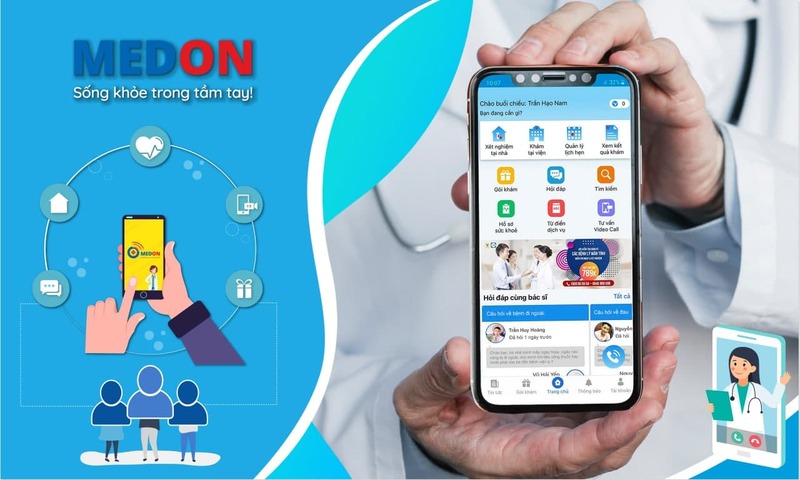With the outburst of medical and technological advancements in the accelerating post-pandemic context, the global telemedicine market has found its rise to become one of the most important and innovative sectors, changing our approach to healthcare indefinitely. This rapid pace is currently inspiring multiple nations to adopt and stay ahead, including Vietnam – an overperformer with a great commitment to innovation.
The need for virtual healthcare delivery has found its way into the heart of every nation as more and more consumers are demanding more sophisticated, transparent, and personalized services. In this quantum leap, Vietnam positions itself as a prompt adopter of telemedicine, with a remarkable growth rate each year. This article will explore the global telemedicine market, and the opportunities for private health and technology companies.
1. Telemedicine in the global landscape
Telemedicine refers to providing remote clinical services and consultations to patients through integrated online channels, which have been accelerated since strong internet and technology advancements, and growing demand for more convenient healthcare approaches. The most notable applications of telemedicine include video consultations, remote monitoring via mobile health apps and wearables, and virtual health platforms used by both patients and healthcare providers.

According to the Grand View Research report about Telemedicine (2024), this industry’s market size was worth 114.98 billion USD in 2023 and is projected to experience a compound annual growth rate (CAGR) of 17.96% from 2024 to 2030. These outgrowing trends are fueled by effective technology integration (such as AI and machine learning), widespread adoption, and applications (such as primary care, chronic disease management, and mental health).

Figure 1: The characteristics of global telemedicine Market
2. Notable trends: AI integration
The application of artificial intelligence into telemedicine is transforming how healthcare is delivered and managed. AI-driven applications are used for tasks such as diagnostics, risk assessment, and personalized treatment plans, improving the accuracy of healthcare services. Machine learning algorithms can process large datasets, uncovering patterns and trends that may be difficult for specialists to detect.
This ability is especially useful in fields like radiology and pathology, where AI can help interpret medical images with a high degree of accuracy. Data analytics, a key component of telemedicine advancements, plays a significant role in population health management. By analyzing patient data, healthcare providers can track trends, manage chronic illnesses, and optimize resource allocation.
This approach can be strongly applied to achieve an individual’s health history, lifestyle, and genetic factors and therefore provide personalized healthcare suggestions, assisting doctors’ recommendations.

3. Notable trends: Remote monitoring
Wearable technology and remote monitoring present a simple but effective application of telemedicine as it has been reshaping the new era of personalized healthcare. Devices like smartwatches and fitness trackers, equipped with sensors, can continuously monitor a range of health metrics, delivering real-time data to both patients and healthcare providers.
These wearables allow individuals to track key indicators such as heart rate, blood pressure, sleep patterns, and physical activity levels. This continuous monitoring provides a comprehensive overview of a person’s health and aids in the early identification of potential health concerns. Remote monitoring can offer individuals with chronic conditions their relief, as these devices can help them keep track of critical signs and symptoms, reducing the need for frequent physical visits.
This trend makes it extremely easy for people to actively manage their health and to take early actions, making it one of the most important trends in the healthcare industry.
4. Telemedicine – Game on with Medon from Medlatec
Medlatec, one of the biggest private hospitals in Vietnam and a key pioneer of digital technology use in health services, has initiated a telemedicine approach called MedOn since 2020. Medon is a management system with a digital structure of SAP ERP, medical record system, laboratory management system, point of sales, and electronic payment. This system offers support in managing patients’ health, ordering laboratory tests (blood tests and such), X-rays, and other medical imaging diagnostic services. The amount of time waiting for test results and consultation briefings is sped up remarkably.

Figure 2: Medon service advertisement
Medlatec provides a wide range of telemedicine services, including provider-to-client consultation, provider-to-provider teleconsultation, medical data transmission, and remote monitoring. These services are delivered routinely, which is not something other businesses could easily achieve in Vietnam. Their value proposition is expanded access to outpatient and home-based services, improved patient experience and satisfaction, and critical key resources (such as 30 IT specialists, 20 health counseling specialists, and many health professionals). In addition, a mobile Mymedlatec app is also deployed so that patients can manage their health profile, book appointments, and share their medical records with desired health providers.
Medlatec has done a great job accelerating the telemedicine market in Vietnam by effectively integrating it into its quality products, transforming healthcare services, and inspiring other hospitals and key business leaders to invest.
5. Opportunities for not only hospitals, but technology companies
For hospitals, telemedicine can enable diversification of range and mode of services, ensure the increase in patient retention, and decrease the physical consultation and communication time between patients and doctors and utilize their time.
For IT companies and investors, this offers immense opportunities for collaboration, partnership, and expansion. Hospitals cannot acquire all patient data without collaborating with many other stakeholders (such as healthcare technology companies, clinic providers, and national government databases). They may also lack expertise, resources, and infrastructure to manage digital healthcare, which IT companies can swoop in and take good care of.
6. Smartdev’s stand on the context
The telemedicine market has demanding requirements such as effective adaptation of AI, machine learning, qualified cybersecurity, and complicated infrastructure development. This urges technology businesses to play a key role in advancing the development of telemedicine. As a dynamic and diverse technology outsourcing company, we can satisfy the requirements of the telemedicine industry through our expertise in software development, secure solutions, and digital transformation services.
Partnering with us is to choose a trusted, innovative partner with cutting-edge technology and future-proof solutions. We can transform your cybersecurity infrastructure and ensure your patients’ trust with industry-leading technology designed specifically for healthcare. Join us today to unlock the potential of telemedicine and further develop this market into the new healthcare approach of the future.
Find out more about our IT Service Offerings for Healthcare and Medical Services at: SmartDev Healthcare and Medical Services







